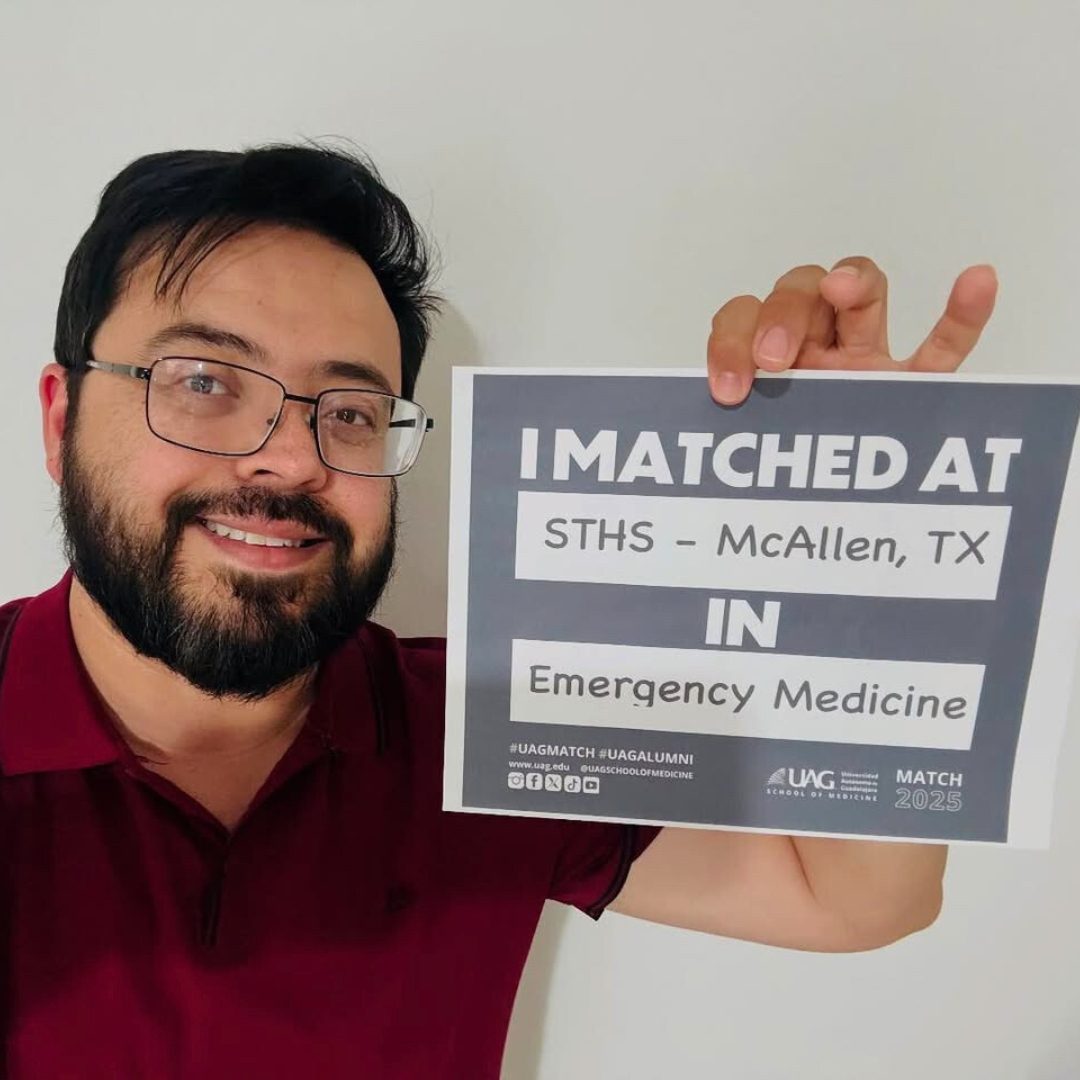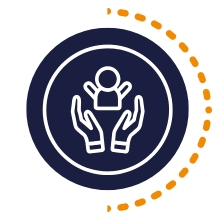


Your Path to Success in the U.S. Healthcare System
RESIDENCY MATCH
SUCCESS



THE JOURNEY TO MATCH DAY
After four years of rigorous medical training at UAG School of Medicine, students devote countless hours to studying, volunteering, shadowing, conducting research, and gaining hands-on experience through real-world clinical exposure. All of this effort culminates in the exciting moment of Match Day—the day when medical students discover where they will continue their training as resident physicians.
This highly competitive and structured process is facilitated by organizations such as the National Resident Matching Program (NRMP) and involves medical students applying to various residency programs across the country.

US RESIDENCIES
ATTAINED BY UAG GRADUATES IN THE LAST 6 YEARS
UAG School of Medicine boasts a network of over 19,000 graduates practicing medicine in the U.S. and more than 80,000 worldwide, reflecting its commitment to global education. These graduates apply their medical training both domestically and internationally, pursuing careers in clinical practice, medical research, and advanced education across the globe.
As part of their postgraduate journey, UAG medical students complete a residency, which provides specialized training in a clinical setting such as hospitals or clinics. The majority of UAG's medical graduates are U.S. citizens or permanent residents, and many go on to secure residency programs in the U.S., further preparing them for successful careers in healthcare.









RECENT RESIDENCY APPOINTMENTS
As a UAG match applicant, you’ll have the full support of Graduate Affairs and Career Advising (GACA) to help you prepare for residency. From residency application writing to interview preparation, you’ll receive comprehensive guidance to ensure you’re ready for the next phase of your medical career.
Through close collaboration with GACA and the International Student Affairs Office (ISAO), you’ll refine your interests, sharpen your interview skills, and craft a strong application for the National Resident Matching Program® (NRMP®). This team-based approach ensures you're well-prepared to secure a residency and succeed in your medical journey.
As a UAG medical student, you’ll have the full support of Graduate Affairs and Career Advising (GACA) to help you prepare for residency. From residency application writing to interview preparation, you’ll receive comprehensive guidance to ensure you’re ready for the next phase of your medical career.
Through close collaboration with GACA and the International Student Affairs Office (ISAO), you’ll refine your interests, sharpen your interview skills, and craft a strong application for the National Resident Matching Program® (NRMP®). This team-based approach ensures you're well-prepared to secure a residency and succeed in your medical journey.